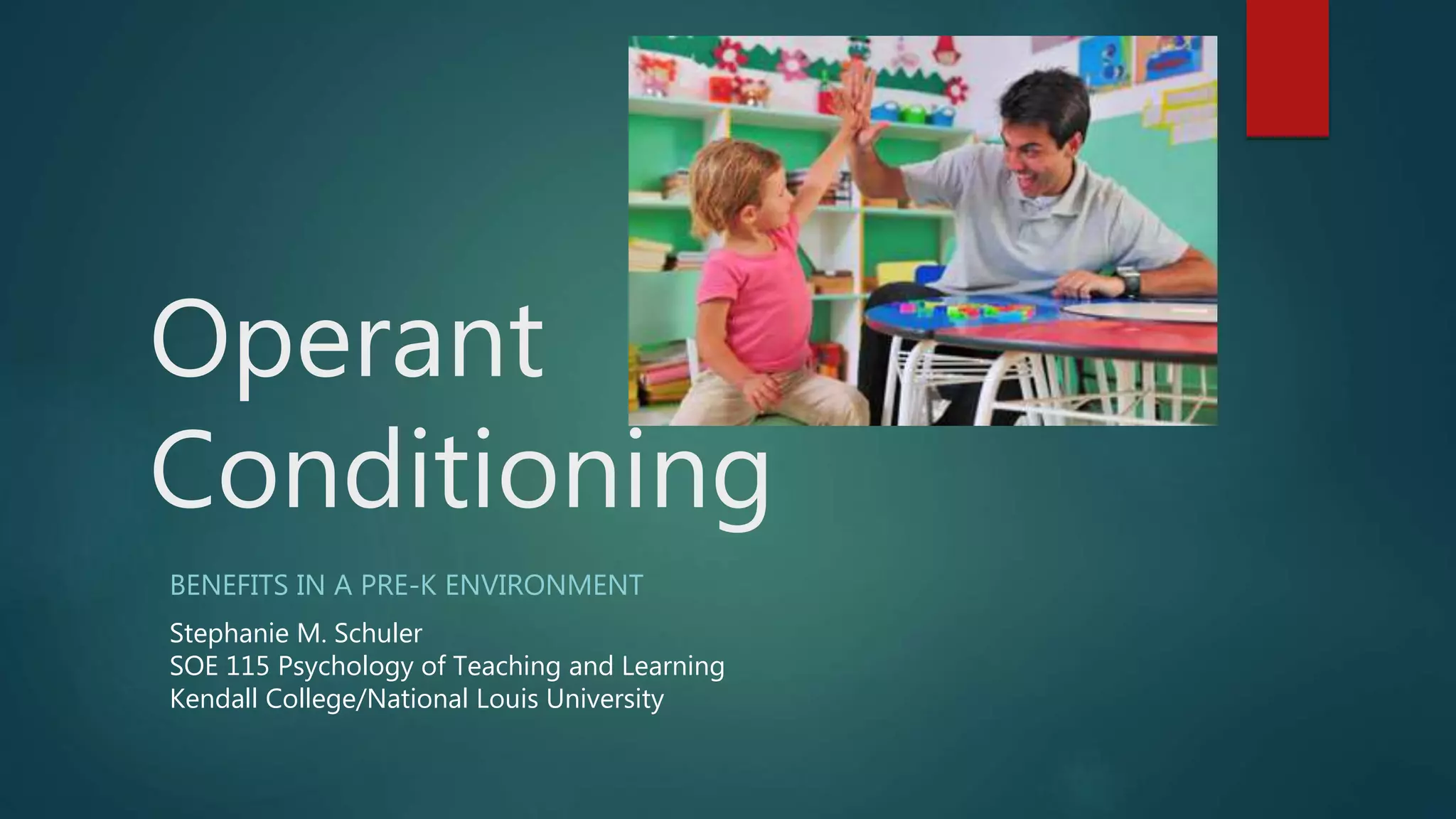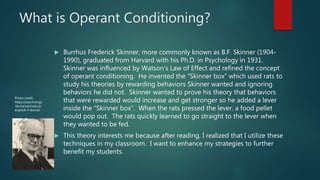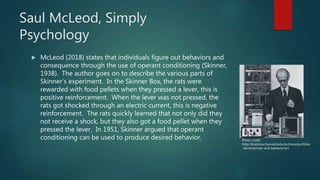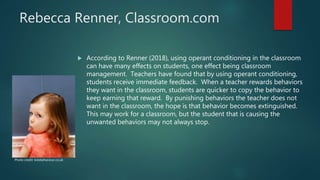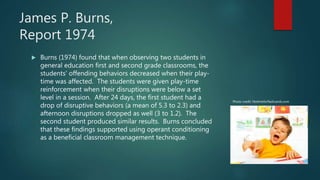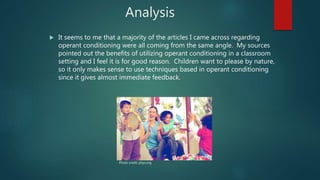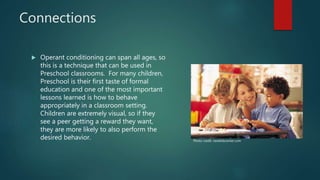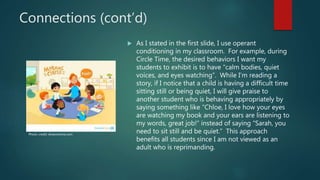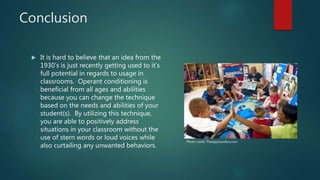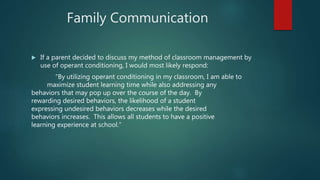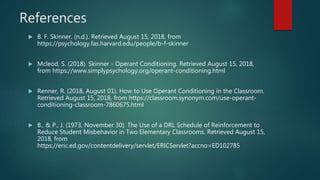The document discusses the concept of operant conditioning, established by B.F. Skinner, and its applications in pre-k classrooms. It highlights the effectiveness of positive and negative reinforcement in modifying student behavior, citing studies that support its benefits in classroom management. The author reflects on their personal use of these techniques to encourage desired behaviors among students, emphasizing the technique's relevance across all ages.
